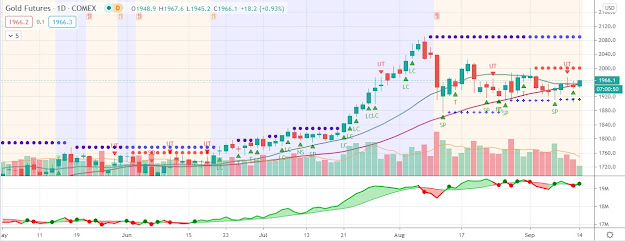The gold price also was buoyed by ongoing sovereign debt concerns in Europe
The gold price pared its gains on Thursday after a better than expected report on the U.S. labor market. The price of gold
climbed as much as $13.34, or 0.8%, to $1,776.54 per ounce in overnight
trading, but fell back toward $1,770 after weekly jobless claims
dropped to more than a four-year low.
Financial markets across North America and Europe extended their gains following the weekly jobless claims data, which came in at 339,000. In doing so, the figure fell to its lowest level since February 2008 and well below the 370,000 consensus estimate among economists.
However, the U.S. Labor Department noted that one state accounted for the large majority of the improved data and cautioned that investors and economists should not read too much into only this week’s data. This announcement helped provide support for the price of gold, which generally moves inversely to U.S. economic data due to the Federal Reserve’s monetary stimulus response to such situations.
The gold price also was buoyed by ongoing sovereign debt concerns in Europe. The latest disconcerting news was that Standard & Poor’s downgraded Spain’s credit rating from BBB-plus to BBB-minus, one level above junk status. The downgrade came with a negative outlook, indicating an increased likelihood of a further downgrade in the near future. The ratings agency cited elevated risks to Spain’s fiscal position, as the nation’s recession has limited the government’s ability to effectively respond to its struggling economy.
Financial markets across North America and Europe extended their gains following the weekly jobless claims data, which came in at 339,000. In doing so, the figure fell to its lowest level since February 2008 and well below the 370,000 consensus estimate among economists.
However, the U.S. Labor Department noted that one state accounted for the large majority of the improved data and cautioned that investors and economists should not read too much into only this week’s data. This announcement helped provide support for the price of gold, which generally moves inversely to U.S. economic data due to the Federal Reserve’s monetary stimulus response to such situations.
The gold price also was buoyed by ongoing sovereign debt concerns in Europe. The latest disconcerting news was that Standard & Poor’s downgraded Spain’s credit rating from BBB-plus to BBB-minus, one level above junk status. The downgrade came with a negative outlook, indicating an increased likelihood of a further downgrade in the near future. The ratings agency cited elevated risks to Spain’s fiscal position, as the nation’s recession has limited the government’s ability to effectively respond to its struggling economy.




Comments
Post a Comment